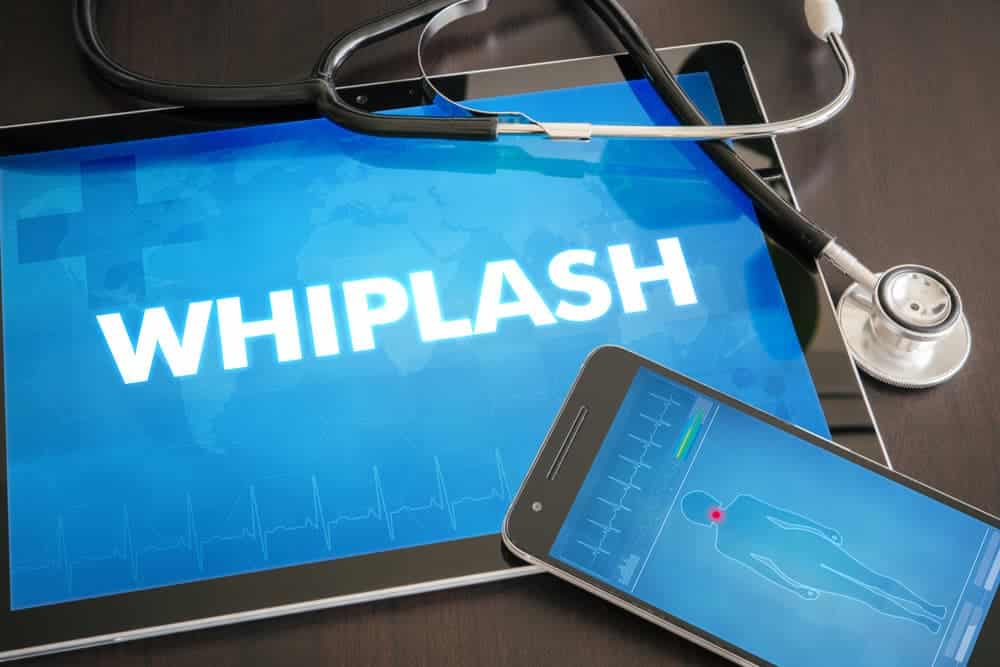One of the most common injuries from a car accident, whiplash, is often seen as a minor issue that quickly heals. However, this isn’t always the case. During a car accident, the intense force can cause your head to whip back and forth, severely straining or even tearing the tissues in your neck.
In more severe cases, or when not met with appropriate whiplash treatment, this can damage the nerves and lead to lasting neurological problems. To fully assess and address these potential complications, it’s important to see a car accident neurologist if you experience any symptoms of whiplash after an accident. A neurologist can help ensure that any deeper issues are treated early to prevent long-term effects.
What Is Whiplash?
Whiplash is a common injury from falls, sports injuries, and particullarly car acciuident rear end collisions. It happens when the force of a crash causes your head to snap back and forth rapidly. This motion can strain or tear the soft tissues in your neck. Notably, whiplash occurs in several phases:
- Initial Impact: The car is hit, typically from behind, pressing the seat against the passenger’s back, loading the spine with forces that push the cervical spine upward and toward the head.
- Counter Movement: The torso accelerates forward from the seat’s impact, while the head lags behind, temporarily distorting the neck’s natural C-shape into an S-shape.
- Hyperextension: The head slams backward into the accelerating seat, likely injuring the soft tissues at the front of the neck.
- Recoil: The head bounces forward off the seat, which may further injure the neck tissues.
- Restraint by Seatbelt: This final phase involves the neck rapidly flexing as the head whips forward, potentially causing more soft tissue injuries.
These events occur within seconds, and the severity depends on factors like the speed of the collision and the positioning of the head and torso at the time of impact. Even speeds below 10 miles per hour have been shown to result in whiplash.
Can Whiplash Cause Neurological Problems?
Yes, whiplash can lead to neurological issues due to nerve damage from the intense movements experienced during an accident. To evaluate and classify the severity of whiplash injuries, medical professionals utilize the Croft Guidelines, which are based on the type of collision—whether it was primarily rear, side, or frontal impact—and the symptoms presented. The severity of whiplash according to the Croft Guidelines is graded from one to five:
- Grade I: Minimal, with no neurological findings and no limitation of motion. No known injury to the ligaments.
- Grade II: Slight limitations of motion, but no neurological findings or ligament injury.
- Grade III: Moderate, with some limited motions and ligament injury. Neurological findings may or may not be present.
- Grade IV: Moderate to severe ligament injury and motion limitations, with neurological findings. Fracture or disc issues are also present.
- Grade V: Severe, requiring surgical management.
The Croft Guidelines also define the stages of whiplash injury:
- Stage I: Acute injury in the inflammatory phase, 0 to 72 hours from injury.
- Stage II: Sub-acute injury in the repair phase, 72 hours to 14 weeks from injury.
- Stage III: Remodeling phase, from 14 weeks to 12 months post-injury.
- Stage IV: Chronic, with permanent symptoms.
This framework helps in determining the appropriate treatment for whiplash and assessing the likelihood of neurological complications.
Whiplash Neurological Symptoms & Diagnosis
Diagnosing whiplash primarily involves a clinical assessment which includes a thorough physical examination, patient history, and sometimes diagnostic imaging. This process helps rule out other conditions and confirms the diagnosis based on symptoms reported and findings during the examination.
Common Neurological Symptoms of Whiplash
- Neck pain and stiffness: The most immediate and noticeable symptom, which can vary from mild discomfort to severe pain restricting movement.
- Headaches: Often occur at the base of the skull and can radiate towards the forehead.
- Dizziness: A frequent symptom that can be accompanied by balance issues.
- Blurred vision: Temporary visual disturbances may occur.
- Memory problems: Difficulty concentrating or remembering, particularly if there has been a concussion.
- Fatigue: Generalized tiredness can be a sign of the body’s response to the trauma.
Irritability and sleep disturbances: Emotional and sleep issues are common due to the stress and pain of the injury.
Whiplash and the Brain: Can Whiplash Cause Brain Injurry?
The rapid motion that leads to whiplash can also cause a concussion, which is a type of brain injury that can happen even without a direct blow to the head. During a whiplash incident, the sudden movement causes the brain to shake inside the skull, hitting against the hard bone and potentially leading to mild traumatic brain injury. Often, the symptoms of a concussion are mistakenly treated as part of the whiplash itself, even though they represent a separate medical issue.
Common Signs of a Concussion from Whiplash:
- Headaches
- Dizziness
- Fatigue
- Weakness
- Numbness and tingling: Often felt in the arms and hands.
In more severe cases, individuals might experience brain dysfunction, such as:
- Motor weaknesses: Including in the lower extremities, which are less common.
- Sensory and cognitive issues: Problems with processing sensory information or cognitive functions like memory and concentration.
- Increased sensitivity to light or sound
- Disorganized communication
- Slow reaction times
- Psychosocial difficulties: Including emotional and behavioral changes.
- Reduced IQ
These symptoms indicate brain injuries related to the motion experienced during whiplash. A significant study showed that out of 1200 MRI scans of patients reporting neck pain from potential whiplash, nearly 25% also had signs of a brain injury. This suggests that brain injuries may be more common than diagnosed, particularly because symptoms of brain injuries and whiplash can overlap, leading to underdiagnosis.
What Happens if Whiplash Goes Untreated?
While mild to moderate whiplash injuries typically heal within three months with proper treatment, they can sometimes lead to chronic conditions, persistent symptoms, and neurological issues, especially if untreated or severe. Factors such as older age or being female can also increase the risk of chronic symptoms. Key issues include:
- Chronic pain: Persistent neck pain that can become a long-term issue.
- Reduced range of motion: Difficulty in moving the neck and sometimes the shoulders.
- Whiplash nerve damage symptoms: Persistent tingling, numbness, or weakness in the arms or hands due to nerve damage.
- Increased susceptibility to further injuries: Untreated whiplash can weaken neck muscles and ligaments, making them more prone to future injuries.
Timely and effective treatment is crucial to prevent these outcomes and ensure a full recovery.
Preventing Whiplash Long-Term Effects
Start treatment promptly after an accident—even if symptoms are delayed due to adrenaline—to prevent these outcomes.
For mild whiplash, treatment under a doctor’s supervision may include:
- Rest and activity: Balancing rest with gentle activities to avoid stiffness.
- Heat and ice therapy: Using both can help reduce inflammation and alleviate pain.
- Anti-inflammatory medications: Drugs like ibuprofen can relieve pain and swelling.
More severe cases may require additional interventions, such as:
- Prescription pain relievers: Including muscle relaxants and opioids to manage intense pain.
- Physical therapy: Aims to improve strength and flexibility in the neck, easing pressure on the spine.
- Chiropractic care: Helps align the spine and enhance range of motion.
- Injections: Used to specifically target areas of nerve and tissue inflammation for pain relief.
- Alternative therapies: Acupuncture, massage therapy, and ultrasound therapy may also be used to support healing and pain relief.
Get Holistic Whiplash Treatment at AICA Orthopedics
At AICA Orthopedics, we understand the complexities of car accident injuries like whiplash. Our holistic approach to care involves a team of specialists, including chiropractors, neurologists, and physical therapists, who work together to create a personalized treatment plan. This integrated care ensures that we address all aspects of your injury, helping you to heal completely and prevent long-term complications.
Contact us today to schedule an evaluation and start on the path to recovery. Whether you need mild intervention or more comprehensive treatment, we are here to support every step of your journey back to health.





